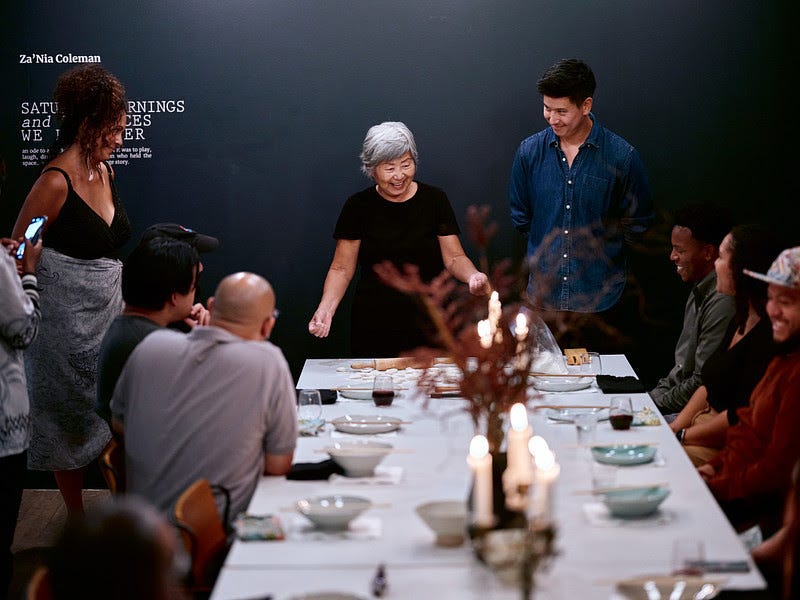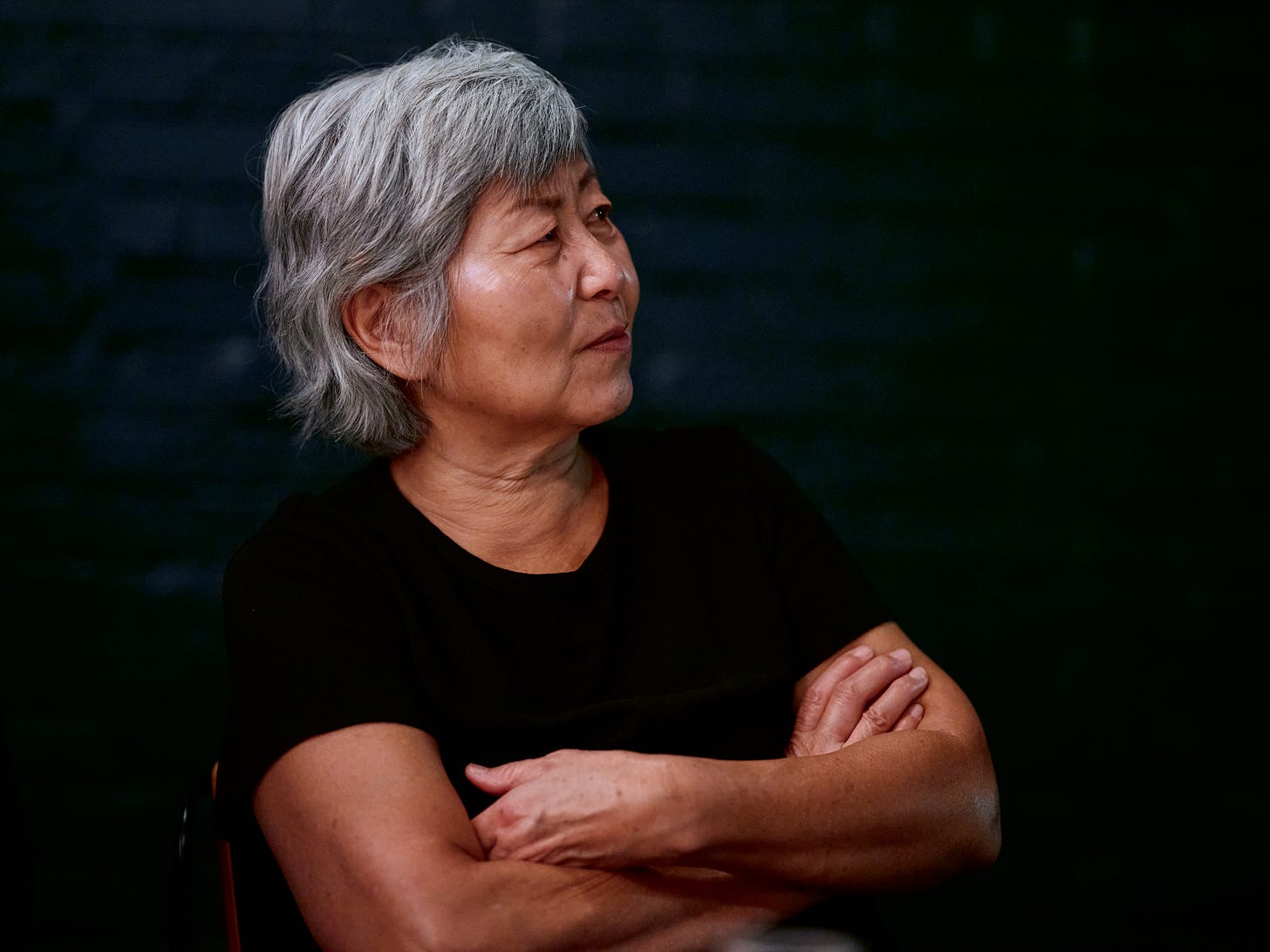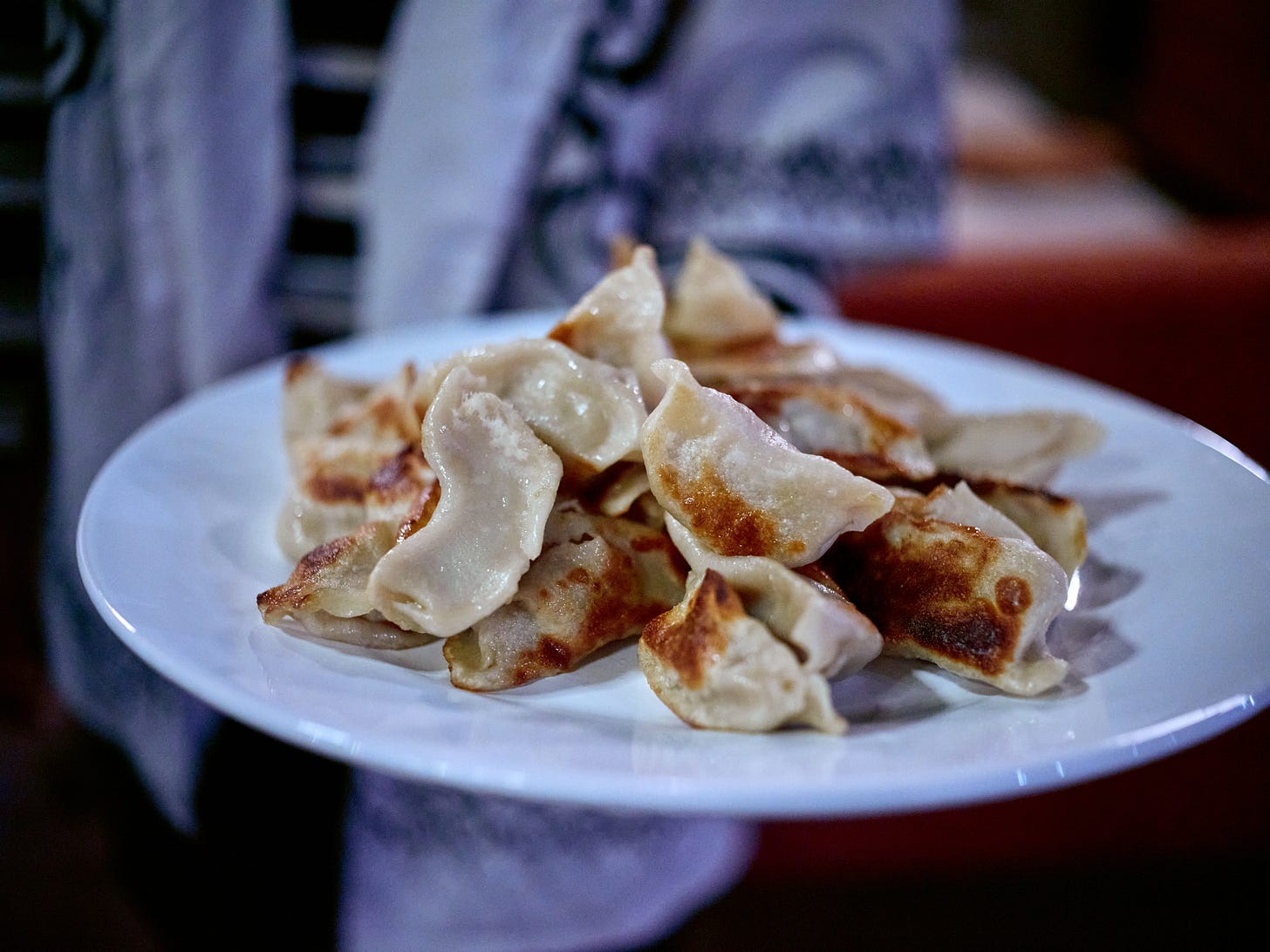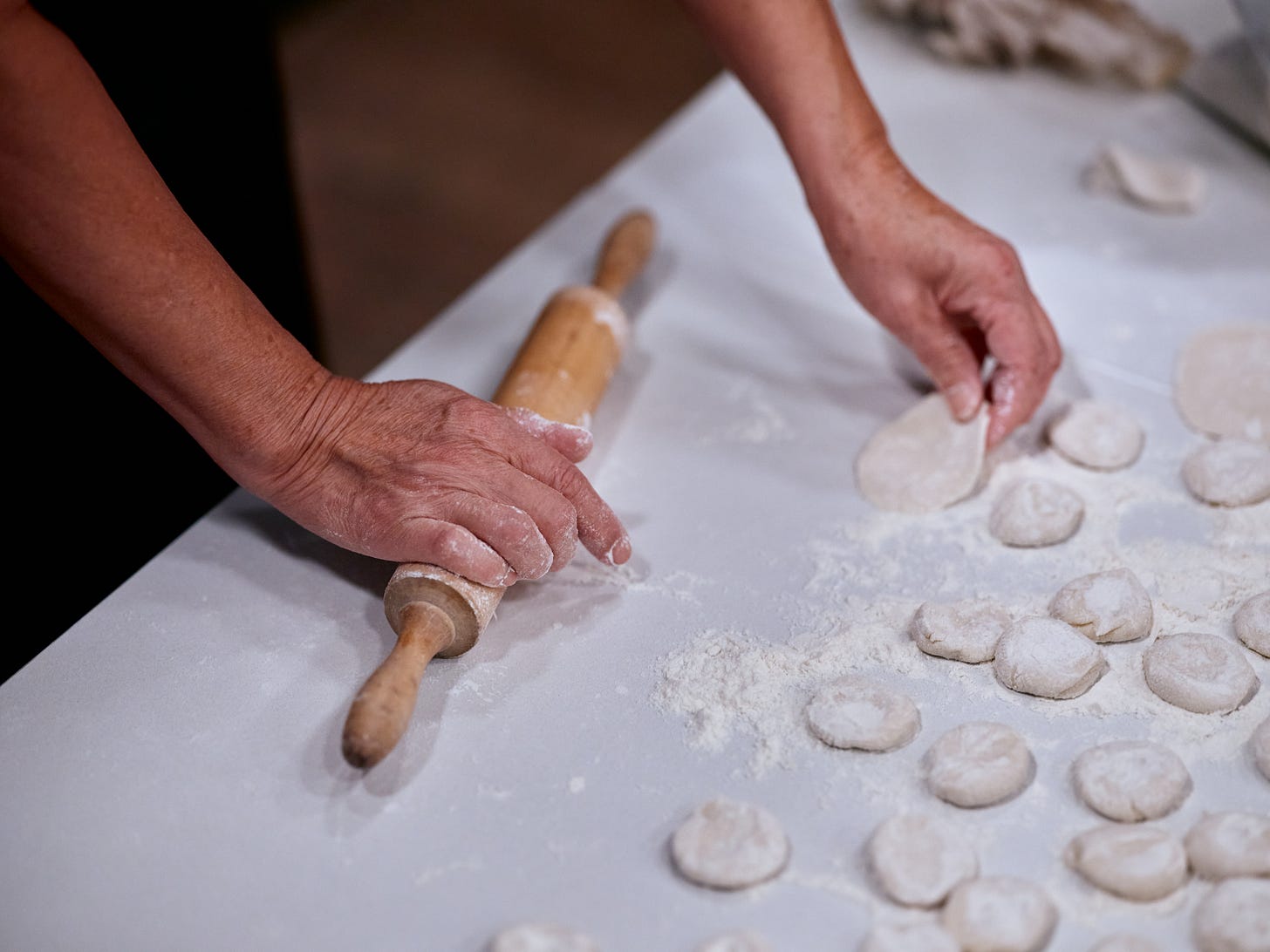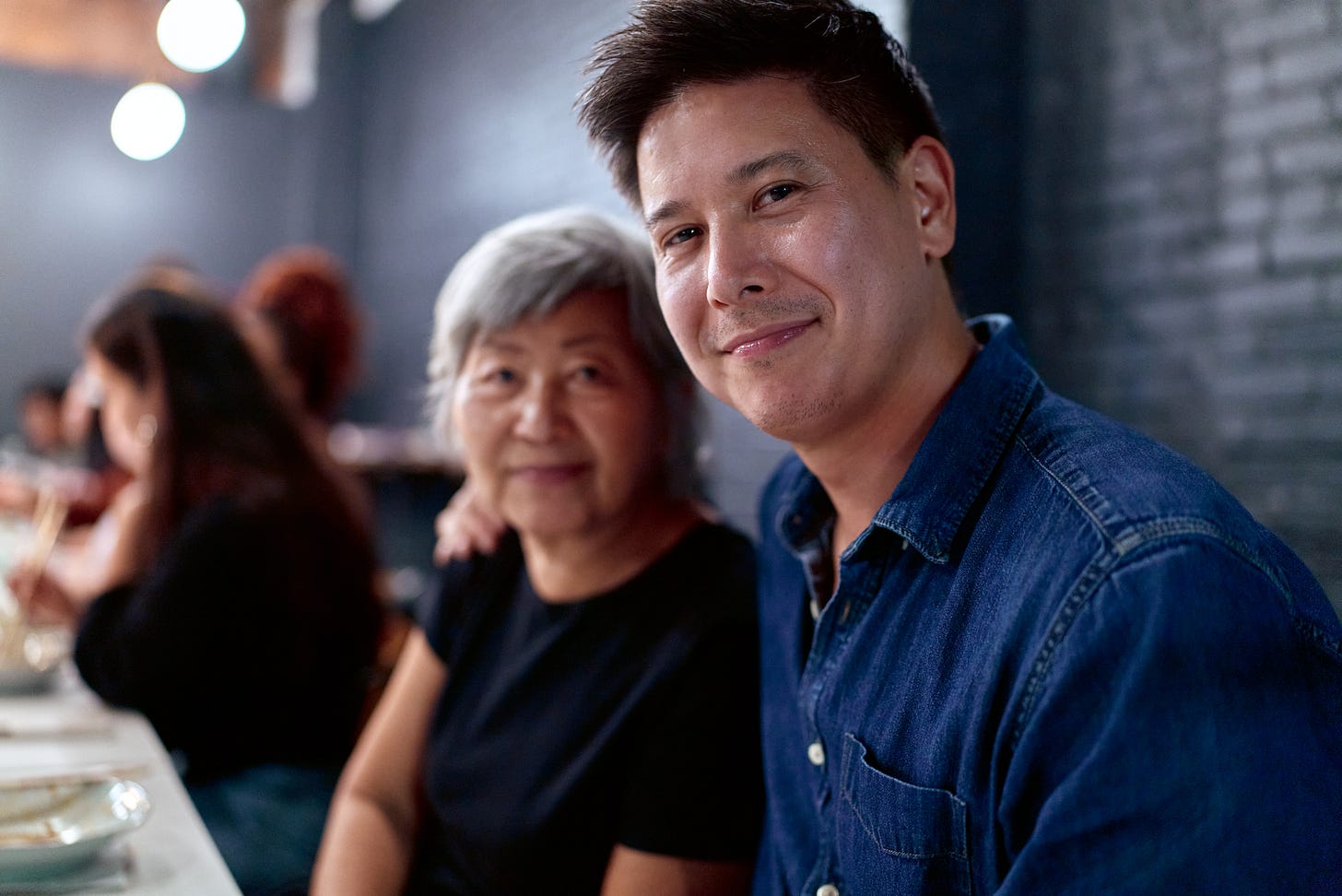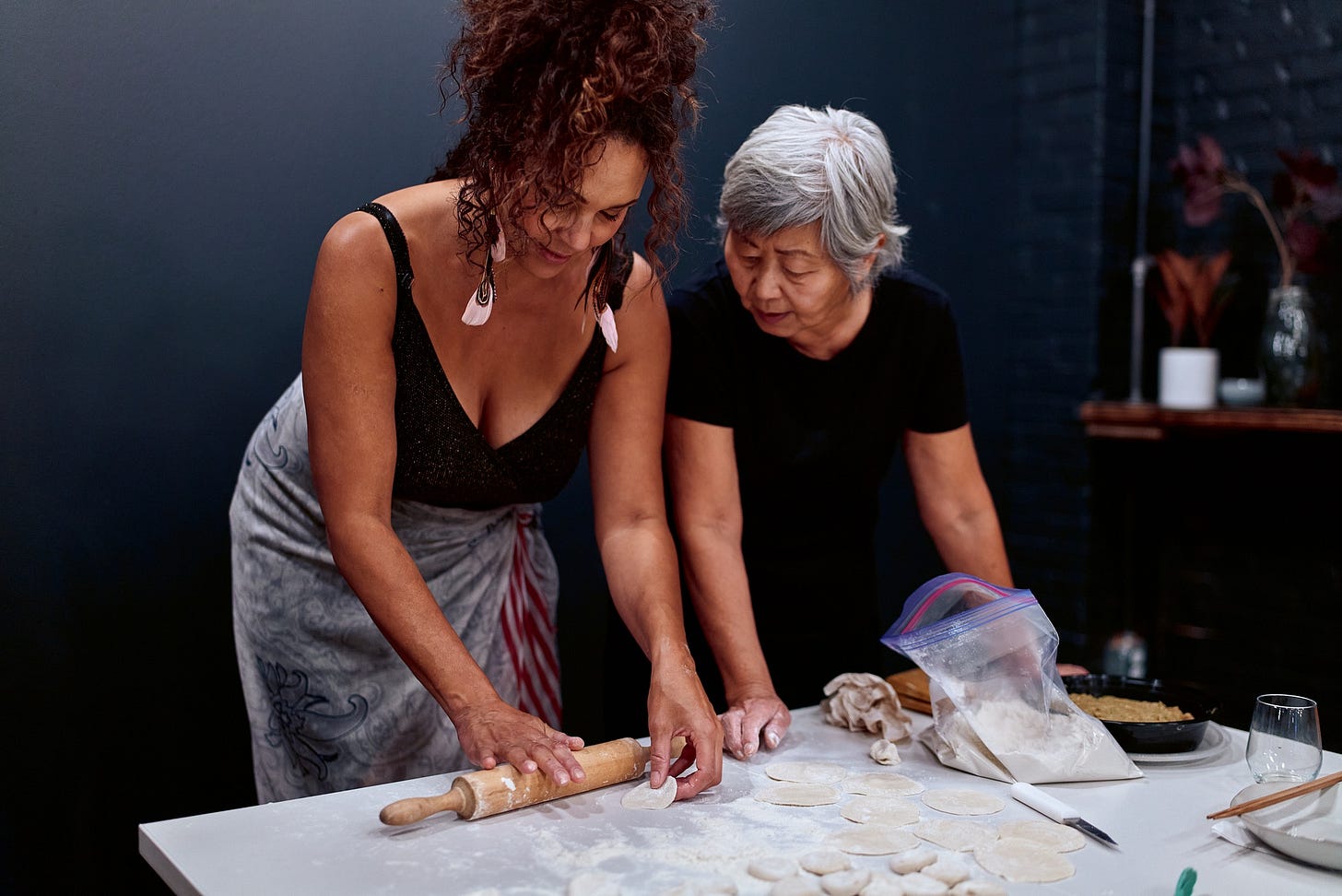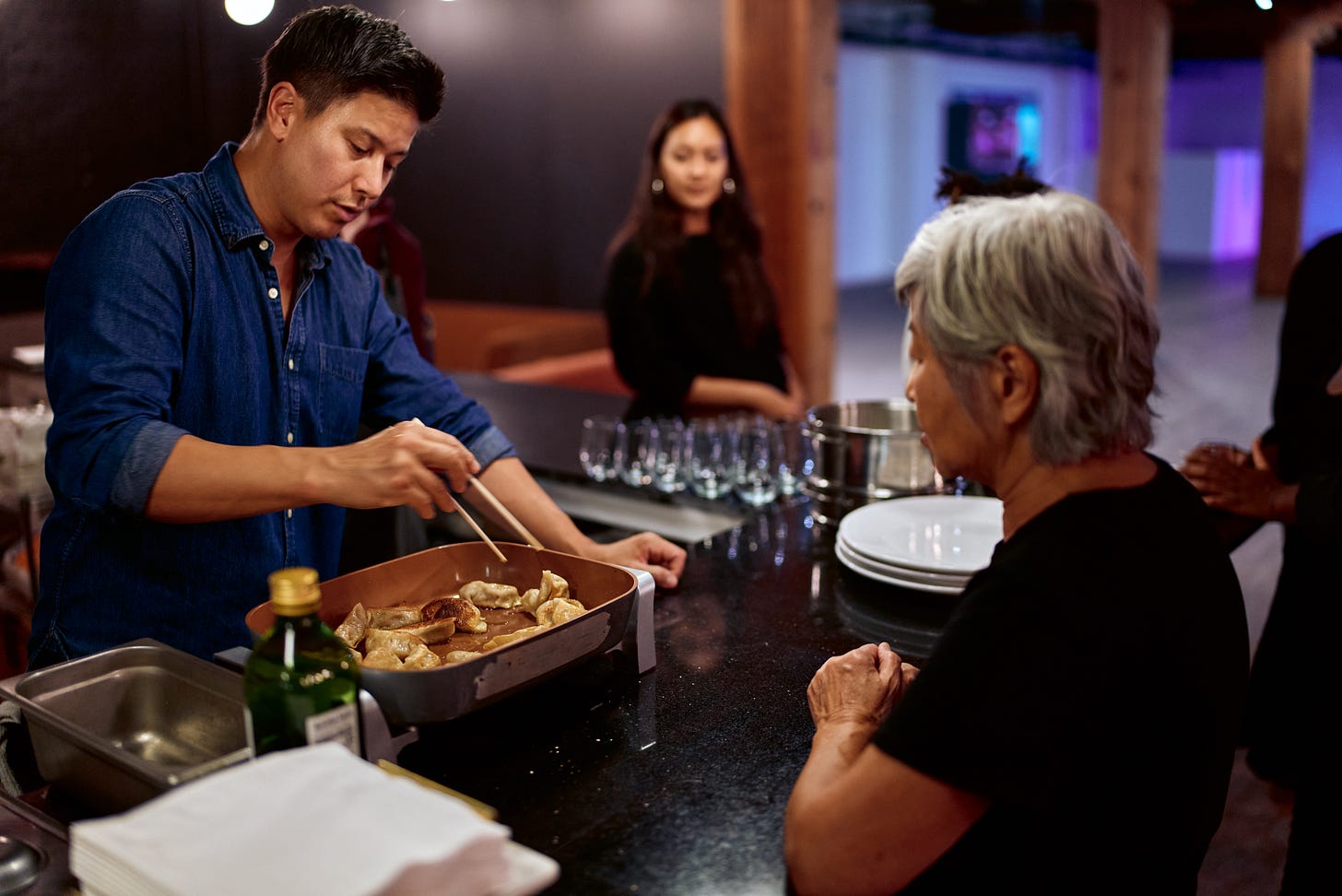A Chinese New Year staple, Jiaozi make this small family big– all year long
By Ali Elabaddy & Mecca Bos
“She was the most beautiful person in the room, both in her personality and her physical beauty. She’d laugh at anyone’s jokes and make you feel seen and special, and heard. She was an amazing person.”
Ryan Stopera’s family lost Ryan’s sister Jessica to addiction 19 years ago. But the aperture she left behind is still fresh. Perhaps it will never close. But the family has a way around— or possibly through— the void.
Stopera, filmmaker, social worker, community organizer, cafe owner, is stoic, soft spoken, generous, warm. You can practically feel the still waters running deep through his veins.
If he has an opposite, it’s his mom Lichun– a marvelous spitfire, direct to the point of cutting, which could sting if it weren’t for the sly twinkle in her eye. Petite in frame, massive charisma.
“I’m never doing this again! This is only for my son or I would never be doing this!”
This, making the family’s handmade jiaozi, Chinese dumplings, for a group of strangers at a dinner party.
Ryan smirks with quiet bemusement as his mom runs the show.
“I’d much rather have her than a basic mom.”
As the chill of the new moon between late January and early February comes to pass, a new beginning will soon be on the horizon as Chinese New Year signals its arrival.
For eight days prior, plus three days of celebration, many prepare for the arrival of the new year and its zodiac representative. Observers anticipate the good fortune that will be bestowed on family, friends, and chosen family. The Chinese New Year of 2023 was dubbed as the year of the rabbit, symbolizing longevity, peace, positivity, and self-protection.
The Stoperas seem particularly bolstered by the latter.
Jiaozi, or dumplings, have been central to Chinese New Year celebrations for as long as anyone can remember. Oral histories about their origins are endless and as interesting as they are delicious. One history is that they were established as a practice during the Ming Dynasty between 1368-1644, with feasts of jiaozi commonplace on Chinese New Years Eve, handed out with hongbao, red envelopes with money, given to children while being told gong xi gong xi, or congratulations, by elders.
“My family would make jiaozi all day long during Chinese New Year,” Lichun remembers. “When people would come to our house, we'd say gong xi gong xi, and give them a few dumplings.”
As she gingerly yet exactingly rolls dumpling after dumpling with the precision of a surgeon, it’s easy to see why a gift of a few dumplings would feel so precious. The homemade dough is as supple as a baby’s skin, and her expert way with it is astonishing.
“Someone once said just use premade wrapper!’ Lichun spits with not a little disdain. “Shut your mouth!”
As she rolls, it’s also easy to see why she would never want to do this again. But she will. The family’s identity depends on it.
Lichun has always moved with a creative spirit. She curated fashion shows in Taiwan, emigrating to Minnesota in 1972 in hopes of furthering her ambitions. She went to cosmetology school, waiting tables at a New China Inn to support herself. She eventually became a makeup artist, working with big names like Mariah Carey.
“When she wants to do something she only does it well,” Ryan gushes.
She imparted that excellence onto her son, and he too excelled– in academics, with a track towards becoming a doctor.
Along the way, Jessica died.
Rather than revert into the pain of that moment, Ryan instead defends the family’s fortitude.
“Something that remained consistent throughout was my mother and father and myself trying to hold ourselves together. It could have gone in the other direction.” They stayed staunchly in the holding it together lane.
Ryan channeled his grief into helping, and became a social worker instead of a doctor, specializing in mental health and addiction. The work healed him as he helped others, the natural order of things. Social work led to community organizing. Community organizing led to social movements, protests, demonstrations. He started documenting them when he saw how that documentation pushed the movements to results.
Today, he’s an award winning filmmaker.
Ryan’s dad Frank was a “stoic, humble” Polish guy from Northeast Minneapolis. Frank and Lichun both worked at Daytons. All of the girls had a crush on him, but he had eyes for Lichun. When he asked her out, she played hard to get. But it didn’t take long for her to cave.
Both parents insisted that Ryan and his sister take pride in their biracial identity. Once, a kid called Ryan a “chink” on the playground. Ryan beat the shit of him. When he and Lichun got called into the principal’s office, his mom said “That’s right.” She had told him to do it.
“I told him to protect himself since nobody here is doing it.”
The principal fell silent.
In Lichun’s time in Taiwan, she developed a taste for jiaozi filled with beef and Chinese sauerkraut.
“We had this barrel that was the size of a garbage can, and my dad would make the Chinese sauerkraut with napa cabbage, salt, and water, pressing the cabbage down with two rocks, to ensure no grease got near the barrel.”
Ryan’s dad’s Polish family made sauerkraut too, and pierogis, the Eastern European answer to jiaozi. Food has always been the lynchpin of “holding it together” for the Stoperas.
“It didn’t matter how busy you were. It was always important that we talked with each other, sharing a meal, expressing that we love each other.”
But then Frank died too. “Completely out of the blue.”
“Losing a child is the hardest loss you can go through,” Ryan empathizes. “For her to be alone in that is very hard. How do you lose half of your family when it’s already small?”
But she’s not alone in it. Their family continuously gets bigger, and jiaozi has something to do with it.
The practice grounds them in an offering to their present community, as a way of honoring the family that is no longer present, and expanding the spirit of both.
“The hotpot broth would take all day to cook, so the broth is very special,” Lichun remembers of her childhood jiaozi.
“What I remember is a whole chunk of pork belly to make the broth, with a table full of fresh steak, lamb, tofu, and live crab, along with two or three different kinds of vegetables.”
The spirit of generosity never left her.
“I always tell Ryan when it comes to food and company, that you bring out the best you have. You always give the guests the best, and never ever run out of food. I remember gatherings where I would serve houseguests live fresh crab. When those same houseguests invited me over for dinner, they opened a jar of Ragu, and made some spaghetti. That was an awakening. Needless to say, I’m no longer friends with those people!”
Her deadpan humor rivals the most successful of stand-ups. She’s half joking. But only half.
Her hands never let up from working the dough.
Her hands never let up from working the dough when Jessica died either, or when Frank followed. As he does today, Ryan stood stoically in the corner, frying the parcels of finished jiaozi.
Together, they ferry mountainous platters of the tiny treasures to the table, an ever expanding family.
PF Cafe is Ryan’s way of intersecting food, art, and community in Northeast Minneapolis’ Northrup King Building, which opened in March of 2023. Executive Chef Shea Maze and Pastry Chef Yon Hailu are both artists and chefs at the space.They curate a seasonal menu with weekly specials based on events and availability of produce from the Lor Family Farm.




